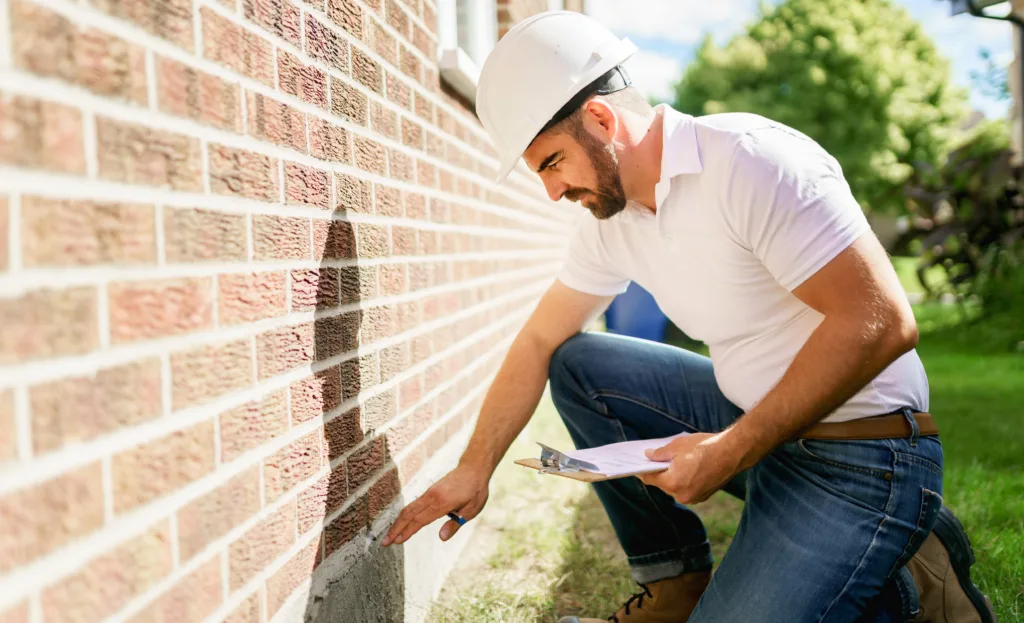Buying a home is a significant financial investment. When a property has a history of foundation repairs, it can make potential buyers worried. They may fear future problems or costs.
Knowing the home’s repair history is important. This knowledge helps buyers make better decisions. A home with foundation issues may need extra care.
Buyers should consider these factors before making an offer. If a property has a history of foundation repairs, it can make the buyer unsure and hesitant.
Understanding how to evaluate homes with previous foundation work is crucial to ensure you’re making a sound investment. In this guide, we will show you the main steps to check a property’s stability. You will learn how to verify the quality of repairs and spot any potential red flags. Whether you’re a discerning buyer or an investor, you’ll gain the confidence to navigate this situation with ease.
Why Are Foundation Repairs a Concern?
Foundation issues can be a deal-breaker for many homebuyers, especially when not properly addressed. For some, the idea of inheriting a previous owner’s problem or dealing with recurring repairs is unsettling. Here’s why it’s essential to dig deeper into the specifics of foundation work before signing on the dotted line:
- Repaired Foundation Does Not Mean Problem Solved: Even if the repair work is complete, underlying soil conditions or drainage issues could lead to new problems.
- Future Repairs Can Be Costly: Foundation repairs often run in the thousands, depending on the extent of the damage. Unforeseen costs can quickly turn a good deal into a financial burden.
- Impact on Resale Value: A history of foundation problems can lower the home’s resale value. This can make it harder to sell later.

What to Look For When Evaluating a Home with Foundation Repairs
1. Request the Repair Documentation
The first step in checking a home with foundation repairs is to get all the related documents. Request the engineer’s report, the scope of work, and details of the materials used. Look for a detailed explanation of what caused the initial issue and how the team addressed it.
Key Items to Review:
- Type of foundation repair (e.g., piering, slab jacking, underpinning)
- Date and duration of the repair work
- Engineer’s evaluation and post-repair inspection report
- Type of warranty provided and whether it’s transferable
2. Check for Transferable Warranties
One of the most important factors in your decision should be the warranty. If the foundation repair company offers a lifetime warranty, check if you can transfer it to yourself as the new owner. A transferable warranty shows that the repair company believes in the quality and durability of their work. Make sure to:
- Read the fine print.
- Understand what the coverage includes and excludes.
- Confirm the process for transferring ownership of the warranty.
3. Hire a Structural Engineer for a Neutral Evaluation
While repair companies often provide their own assessments, it’s wise to get a neutral evaluation from a licensed structural engineer. This professional can conduct a thorough inspection, identify any overlooked issues, and confirm whether the repair was done correctly. They’ll also assess the current state of the foundation, giving you a more complete picture.
4. Evaluate the Type and Quality of the Repairs
Not all foundation repair methods are equal. For example:
- Steel or Helical Piers: Generally considered the most reliable for long-term stability. Look for details on pier depth and spacing.
- Concrete Piers: Effective but may shift in expansive soils over time.
- Slab Jacking or Mudjacking: A quicker fix but may not last as long in unstable soil conditions.
Understanding the pros and cons of the repair method used will help you gauge whether additional work might be necessary.

Signs That Indicate Potential Ongoing Issues
Even after repairs, a home could still show signs of foundation distress. Be on the lookout for:
- New Cracks in Walls or Ceilings: Horizontal or stair-step cracks can indicate ongoing shifting.
- Uneven or Sagging Floors: Suggests that additional support may be needed.
- Sticking Windows or Doors: A sign of recent foundation movement.
If any of these issues are present, the repair may not have fully addressed the root cause, and further work could be necessary.
Is Buying a Home with Foundation Repairs Worth It?
A home with foundation repairs isn’t necessarily a bad investment, but it requires careful evaluation. If the repairs were performed by a reputable company, backed by a strong warranty, and no new damage is visible, it could be a great opportunity to buy a home at a reduced price. However, if there are red flags, it’s best to proceed with caution—or walk away.
Final Thoughts: Protect Your Investment
Before buying a home with past foundation repairs, take time to check the repair history. Talk to professionals and learn about future maintenance needs. With the right approach, you can mitigate risk and ensure you’re investing in a stable, secure property.
If you need expert advice or have questions about foundation repair methods, feel free to reach out. We’re here to help you make informed decisions every step of the way.

